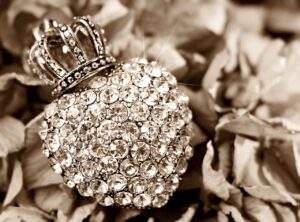The Impact of Hard Water on Your Plumbing System
Hard water is comprised of a high concentration of minerals like calcium and magnesium. This naturally occurring mineral content isn’t harmful to your health but can hurt your plumbing system and appliances.
When hard water is run through your faucets, it saturates the surface of your fixtures and creates soap scum. The scum can build up quickly.
Increased Water Bills
Hard water is a problem that affects homes across the country, and it can result in increased water bills. If you have a high water bill, it may be a sign of an issue with your plumbing system.
Water passing through your pipes carries minerals such as calcium and magnesium. These can make your pipes corrode, allowing water to leak out.
Alternatively, the minerals can build up inside your pipes and cause them to become closed off. This reduces the water flow space, leading to decreased water pressure at fixtures like showerheads and faucets.
Your water heater might have to work harder than it would otherwise, which can increase your energy bills. In addition, the mineral deposits may shorten the life of your appliance. This is a reason why you should consider investing in a water softener. Try to ask for help from experts like Bellevue plumbing can help prevent future problems and lower your utility costs.
Pinhole Leaks
Pinhole leaks occur when water corrosion damages your pipes’ outer layer of copper. This can happen through several different causes.
Chemicals in the water supply, such as chloramines or other dissolved solids, can eat away at the protective oxide coating that insulates your copper pipes from corrosive elements like oxygen and moisture.
In addition, physical contaminants in your water, such as sediment and heavy metals (if you’re using well water), can wear away at the interior of your pipes over time.
If your home is prone to hard water, installing a water softener system is essential to remove the minerals in your water and reduce the damage done by corrosion. This will help keep your pipes and fixtures in good shape, preventing any future pinhole leaks from occurring.
Damage to Pipes and Fixtures
Hard water can be harsh on your home’s fixtures, pipes, and appliances. It leaves a buildup of calcium on the faucets, sinks, and showerheads that can be difficult to clean off, reducing the lifespan of these fixtures.
It can also leave a white film on the surfaces of your toilet and sinks, making them look dirty and dingy, even after regular cleaning. This chalky white film is a substance called soap scum.
The scum is formed when the minerals in hard water react with soap to create a thick, sticky, white film that leaves unsightly residue on the surfaces. It can also be tough on a sink’s drain line and reduce water flow, making it more likely for clogs to form when bits of food or debris gets stuck in the narrowed pipe.
Corrosion
The minerals in your home’s tap water aren’t suitable for your pipes. They can build up and cause serious problems all over your home’s plumbing system, from clogged drains to a shortened life span for major appliances.
When calcium and magnesium are present in your water, they can stick to the sides of your pipes, causing them to wear down faster. This is especially common in homes with steel pipes.
Copper and PVC pipes, however, are more resistant to this problem. Still, a whole-house water softener will help prevent this by removing the excess calcium and magnesium from your home’s water.
Corrosion results from an electrochemical reaction between a metal and oxidants such as oxygen, hydrogen, and hydroxide. It is a common problem affecting various items, including buildings, bridges, oil pipelines, chemical plants, medical implants, etc. It is caused by several different factors and can be very dangerous.





